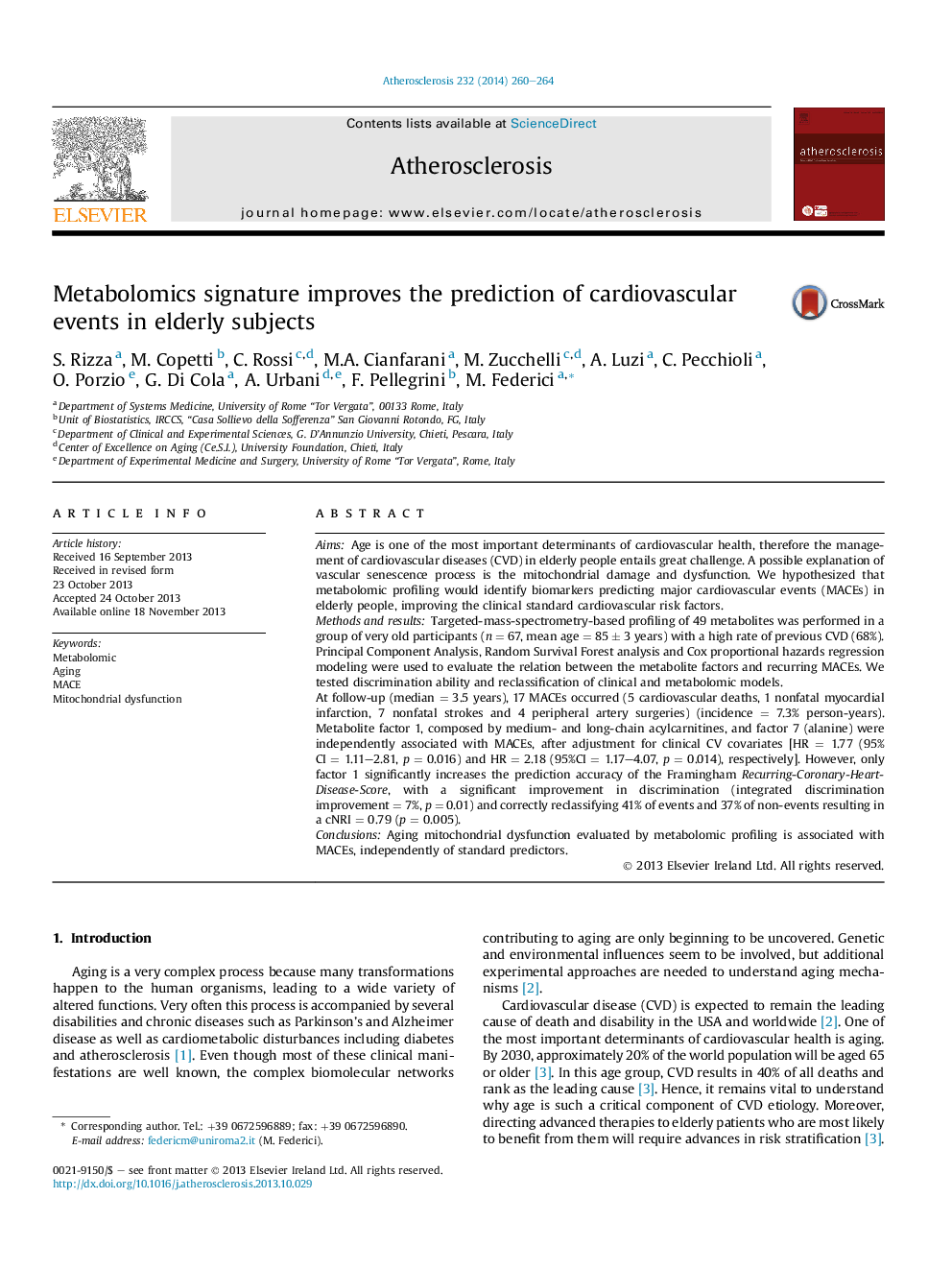| کد مقاله | کد نشریه | سال انتشار | مقاله انگلیسی | نسخه تمام متن |
|---|---|---|---|---|
| 5946823 | 1172362 | 2014 | 5 صفحه PDF | دانلود رایگان |
- Aging is associated to increased CV risk.
- Metabolic pathways confer CV risk.
- Metabolomics can be used to map metabolic pathways in vivo.
- Acyl-carnitines predict major cardiovascular event in older people.
- Recurrent Framingham score is improved by acyl-carnitine.
AimsAge is one of the most important determinants of cardiovascular health, therefore the management of cardiovascular diseases (CVD) in elderly people entails great challenge. A possible explanation of vascular senescence process is the mitochondrial damage and dysfunction. We hypothesized that metabolomic profiling would identify biomarkers predicting major cardiovascular events (MACEs) in elderly people, improving the clinical standard cardiovascular risk factors.Methods and resultsTargeted-mass-spectrometry-based profiling of 49 metabolites was performed in a group of very old participants (n = 67, mean age = 85 ± 3 years) with a high rate of previous CVD (68%). Principal Component Analysis, Random Survival Forest analysis and Cox proportional hazards regression modeling were used to evaluate the relation between the metabolite factors and recurring MACEs. We tested discrimination ability and reclassification of clinical and metabolomic models.At follow-up (median = 3.5 years), 17 MACEs occurred (5 cardiovascular deaths, 1 nonfatal myocardial infarction, 7 nonfatal strokes and 4 peripheral artery surgeries) (incidence = 7.3% person-years). Metabolite factor 1, composed by medium- and long-chain acylcarnitines, and factor 7 (alanine) were independently associated with MACEs, after adjustment for clinical CV covariates [HR = 1.77 (95%CI = 1.11-2.81, p = 0.016) and HR = 2.18 (95%CI = 1.17-4.07, p = 0.014), respectively]. However, only factor 1 significantly increases the prediction accuracy of the Framingham Recurring-Coronary-Heart-Disease-Score, with a significant improvement in discrimination (integrated discrimination improvement = 7%, p = 0.01) and correctly reclassifying 41% of events and 37% of non-events resulting in a cNRI = 0.79 (p = 0.005).ConclusionsAging mitochondrial dysfunction evaluated by metabolomic profiling is associated with MACEs, independently of standard predictors.
Journal: Atherosclerosis - Volume 232, Issue 2, February 2014, Pages 260-264
